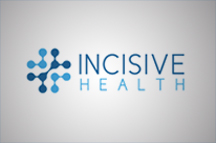Blinked and you missed it? Here are some of our highlights from the world of health on Twitter over the past 7 days.
-
 In the week NHS England hit pause on care.data, here are three perspectives on the project by Andy Cowper, Ben Goldacre and Jonathon Tomlinson.
In the week NHS England hit pause on care.data, here are three perspectives on the project by Andy Cowper, Ben Goldacre and Jonathon Tomlinson. - Telling a convincing story is hard when you are not allowed to use the good bits of your narrative. @MBirty looks at the communications challenges facing Jeremy Hunt and Andy Burnham.
- Good for health, good for wealth. Here is a paper suggesting that health spending has a significant domestic fiscal multiplier.
- The impact of austerity on health – a look at the Greek example.
- A map of the percentage of national GDP spent on scientific research.
- The world’s population according to latitude and longitude.
- An independent advocacy scheme to support older people with cancer.
- Research on palliative and end of life care – help determine the big questions.
- Fascinating article on why health tourism is changing health – but not in predicted ways.
- 'Brief Decision Aids' that help people make informed choices.
- @mentalhealthcop is back.
- An anti-stigma campaign focusing on mental health treatment could save lives argues Louis Appleby.
- A map of travel times for emergency admissions, which have hardly changed over time.
From America:
- There are two Americas when it comes to healthcare quality, costs and outcomes
- Crowd-sourcing ideas for cancer clinical trials.
- A perspective from @kevinmd on why privacy might not actually be that high on most people’s agenda.
- Online health info is often a great resource, but can also lead to scams. Here are some tips to avoid quackery.
- What do hospital chaplains do? This blog on the work of chaplains with American cancer patients will challenge some misconceptions.
- Coincidence or power? An assessment of the impact of financial incentives in driving the adoption of health IT.
And finally…
- A fist bump is better than a handshake when it comes to preventing the spread of infection. There is a pilot study to prove it.
Incisive Health is the new force in health policy and communications. In an NHS environment that is noisy, changing rapidly and where decision-makers are under intense pressure, policy communications need to be incisive to make an impact. We know how to cut through the noise and competing priorities to deliver results that enhance our clients' businesses and reputations and – ultimately – improve healthcare for patients.














